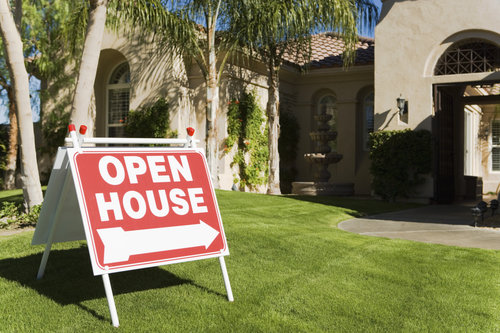One of the key factors to a successful career in real estate is hosting successful open houses. They provide an opportunity to expose buyers to homes, grow your client database and expand your business. However, many agents make crucial mistakes when conducting these events. To learn more about the worst kinds of errors, we spoke with two experienced agents, Frank Montro of Frank Montro Homes and Connie Tomlinson of Realty Executives.
1. Not Reaching Out to Potential Clients
One of the most common mistakes real estate agents make at open houses is thinking that success means just selling the house. With dozens of people walking through the home, connecting with potential future clients is often more important than trying to close a deal on the house. “Most people don’t walk into an open house and whip out their checkbooks,” say Montro. “Real estate isn’t a transaction business; real estate is a relationship business. You’re looking to meet that one person who gives you four or five referrals. If you sell a house, and you do not get two, three, four, five referrals out of it, then you’re not selling. You’re just handling a transaction.” Tomlinson agrees, adding that the people walking through could serve as free advertising. “If you get multiple buyers through who show interest, they could spread the word that it’s a great house, and get that exposure out there.”
2. Doing Minimal Cleaning
Cleanliness is paramount. But that doesn’t just mean wiping down the counters. The front lawn, the first thing potential buyers will see, should be trimmed and mowed so that people are excited to walk in. Indoors, everything should be spotless. “It’s amazing how important it is to have a clean house,” says Montro. “Nothing turns somebody off faster than to walk into a house that’s dirty.” Buyers have sharp eyes, so do not forget to double-check the nooks and crannies where dust or dirt might have built up. A solid understanding of the house will help with this, says Tomlinson. “You need to know the house, and go through the house ahead of time.”
3. Shying Away from Effective Advertising
Too many agents, Montro says, limit their advertising efforts for open houses, and thus limit their audience. When it comes to advertising, more means more. Sending out an invite to your data list is a good start, but there are dozens of potential buyers waiting to be reached. Montro says he’s discovered his best radius for finding clients: “What I’ve learned is that the magic number is four blocks. We’ve found that we get a lot of buyers if we inform people within four blocks of the listing. A lot of times we’ll do a mailing within a four-block radius of the house. That is critical. That is a huge money maker.”
4. Thinking One Sign Will Be Enough
Another common mistake is just putting up one open house sign. Signs advertise to people you might not have been able to reach with e mails and online ads alone, so the more signs you have, the larger an audience you will reach. Spreading signs across the neighborhood will also allow your sign to be seen by more people. “You want to have at least six to eight directional signs at different intersections,” says Montro. “The more signs you put up, the more opportunities you have to get people to see them. Leave a trail at every intersection.”
5. Doing Anything Last Minute
Be prepared for the big day well in advance. A smartly planned open house allows for time to fix problems that pop up. “The number one thing is being prepared before you go,” says Tomlinson.
6. Assuming Potential Buyers Will Remember You
A very important part of real estate is making sure a potential client remembers you. Buyers view anywhere from two to 20 open houses, so making sure you and your houses stick out is crucial. The best way to help people remember you is by providing handouts that include the specific details of the house, along with your picture and contact information. “Make sure to have information sheets out,” says Tomlinson. Even if the individual does not buy the listing, they may connect with you in the future for their real estate needs.
